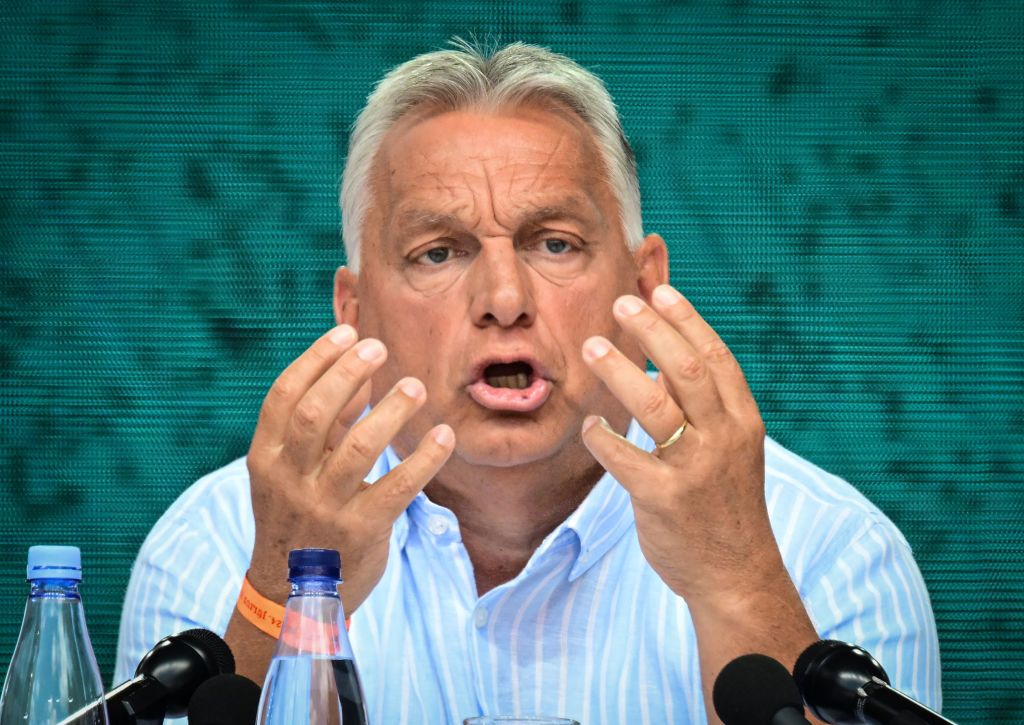Hungarian Prime Minister Viktor Orban recently made controversial remarks accusing the U.S. of being behind the explosions of the Nord Stream natural gas pipelines, connecting Russia and Germany. He claimed that a third party is needed to end the war in Ukraine and criticized Europe for following Washington’s demands. Orban stated that Europe has neglected its own interests by imposing sanctions that have damaged the economy while remaining silent about the attacks on the Nord Stream pipeline. Investigations into the explosions have not yielded conclusive evidence, with some German investigators linking the sabotage to Ukraine, although Kyiv has denied any involvement.
Orban also criticized Poland for its close ties with the U.S., accusing Warsaw of rejecting the Visegrad Group to join a more aggressive political axis led by London, Warsaw, Kyiv, and Baltic and Scandinavian countries. The Hungarian leader has taken on the role of a negotiator between Russia and Ukraine, meeting with Russian leader Vladimir Putin, Chinese leader Xi Jinping, and Republican presidential nominee Donald Trump. Orban has expressed support for Trump, claiming that if elected, the U.S. president will stop funding Ukraine and facilitate peace talks. However, his actions have drawn criticism from the EU and Ukrainian President Volodymyr Zelensky, who believe NATO and the EU can resolve the conflict without Orban’s involvement.
Orban’s stance on the Ukraine-Russia conflict has positioned Hungary as a key ally of Russia within the EU. He has obstructed aid to Ukraine, advocated for negotiations, and consistently echoed Kremlin talking points. Despite facing criticism from the EU, Orban intends to continue his ‘peace mission’ and has called for the EU to join China and the U.S. in pressuring Russia and Ukraine to engage in peace negotiations, especially with the potential return of Trump to power. Some Western countries have blamed Russia for the explosions on the Nord Stream pipelines, while German investigators have pointed fingers at Ukraine, although the investigation is still ongoing.
Orban’s statements have raised tensions within the EU, particularly given his close ties with Russia and his controversial views on the conflict in Ukraine. His alignment with Russia and criticism of Western sanctions have put him at odds with EU policies and further strained relations between Hungary and other European countries. Orban’s efforts to position himself as a mediator in the Ukraine-Russia conflict have been met with skepticism and disapproval from other EU leaders, who believe that diplomatic efforts should be led by established international institutions such as NATO and the EU. The ongoing investigations into the Nord Stream pipeline explosions have highlighted the complex geopolitical dynamics at play in the region, with different countries and leaders taking contrasting approaches to resolving the conflict.
Orban’s assertion that a third party is needed to end the war in Ukraine reflects his belief that external intervention is necessary to break the stalemate between Russia and Ukraine. His calls for the EU to join China and the U.S. in pressing for peace negotiations underscore the challenges of finding a resolution to the conflict that satisfies all parties involved. The diverging views within the EU regarding Orban’s role in the peace process highlight the complexities of diplomacy and the differing priorities of member states. As the situation in Ukraine continues to evolve, the role of Hungary and its leader Viktor Orban in shaping the region’s future remains a topic of debate and scrutiny within the EU and the broader international community.


